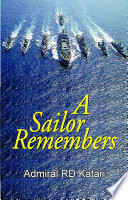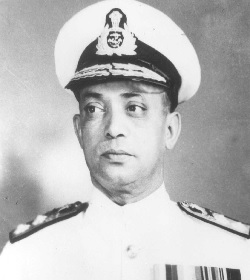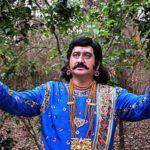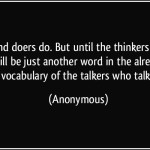A pivotal part of State & National Culture is Military Culture. After all, as the platitude goes, Freedom is Not Free. The People who put their lives on the line to serve their country, don’t always have an individual calling. Many are often the latest in a long line of military men. That is the importance of martial culture. It is why we wrote an article on Dhanurveda.
But to a famously materialistic culture that is more interested in real estate deals than medals of honour, one must ask how all this is relevant? Well, long asked questions about coordinated world conflict are now being answered. In the shadow of the recent clash at the Line of Control (and beyond), it becomes natural for Aandhras to wonder about their national contribution. A state that has stereotyped itself for films and IT must also show its martial mettle from time to time. This is the time, after all, to stand up and be counted.
Undoubtedly, there are certain communities and states that remain in the premier echelon of military performance. Part of it is due to community pride in military service, and part of it is due to colonial recruiting practices , but a key factor has been retention of traditional military culture. The Rajputs, Sikhs, and Jats all understandably pride themselves in feats of valour & storied martial culture—and the results speak for themselves in sheer number of PVCs. Accordingly, the 2 (of 21 PVCs) Southern entrants both appear to be of Tamilian extraction. Kudos to them for their contributions & hard-earned reputations, but whither Andhra?
Although Aandhras frequently feature among enlisted men and the occasional officer, we tend to be better known of as Ashok Chakras and Kirthi Chakras. While many of us have a number of family members who served as officers, the famous names are more ancient and medieval, than modern. However, key number show that we aren’t slouches in the jawan department.
https://x.com/SecularFascist5/status/1920549390965473740
Part of is that few probably seek command roles (as well as the internal politics of command…), but part of it has also been the sheen of the private sector (especially abroad). What isn’t known however, is that there have been a number of famous Telugus who served in key Indian Military positions, including the first Indian Chief of Staff of the Indian Navy: R.D.Katari.
Background
On October 8th 1911, Ram Dass Katari was born in Chingleput, Madras Presidency. India, at this time, was still under Colonial rule, and the Royal Indian Navy (especially the command structure) was British for all intents and purposes.
Young R.D. would go to college in Hyderabad Princely State before joining the Navy. He topped in his entrance exam to mercantile marine ship TS Dufferin, and would volunteer in the Indian Navy as a Sub-Lieutenant in WWII. He served in both the Atlantic & Indian Oceans on various surface vessels, specialising in anti-submarine warfare. By War’s end, he was appointed commanding officer of the HMIS Cauvery, and tasked with mine-clearing.
At Independence, he was tapped to be commander of the Kistna, and defended the Kathiawar during the Liberation of Junagadh Princely State. He was then raised to be Executive Officer of the INS Delhi, a powerful Cruiser. By 1949, he was promoted to Captain and established as Chief of Naval Personnel. He soon became Task Force commander of the Destroyer Squadron, and captained its Lead Ship (INS Rajput).
By 1954, after a course at the Imperial Defence College, he became Deputy Chief of the Naval Staff. Successively promoted to Commodore and Rear Admiral, in 1958, he became the First Indian Chief of Staff of the Indian Navy. It is odd to us today to think that a non-Indian could lead a branch of the armed forces (let alone all of them), but that is what happened in India, well after Independence and even after the establishment of the Republic. Not all of this can be attributed to technical skills and staffing shortages.
Regardless, change was in the air, and Admiral Katari would again see action during the Liberation of Goa, in 1961. He is credited with the successful Naval operations that ended Portuguese (and Colonial Rule) in the remaining parts of India. He would retire in the summer of 1962, after a storied career.
He later engaged in a brief career in government, as Chair of the AP Transportation Corporation and finally as India’s Ambassador to Burma (now Myanmar). He passed away in 1983. He was survived by his wife and daughter and son-in-law. The latter is the, um, well-known Magsaysay Award winner, Admiral Ramdass Laxminarayan, who also served as Chief of Naval Staff.
Achievements
- First Indian to Lead Indian Navy as Chief of Naval Staff
- Oversaw Naval Operations during Liberation of Junagadh, in Gujarat
- Oversaw Naval Operations during Liberation of Goa, from Portuguese
- Saw action in WWII
- Presided over Indian Navy during its Early Republic Days
- Managed the Acquisition and Operation of India’s first CV (INS Vikrant I)
Admiral R.D.Katari was a Liberator, not only from colonial or religious repressive princely state rule, but also from self-doubt. The early days of the Indian Republic were filled with uncertainty. The plight of what was soon to be a billion people was in the hands of untested politicians, and military officers with previous (and ongoing) loyalties.
Admiral Katari put aside those doubts and fashioned the Indian Navy as a formidable fighting force. The Navy he helped build would acquit itself well in 1965, just 3 years after his retirement.
The Crossword
A proper military officer should be a man-of-letters as well. R.D.Katari was just that, literally. He distinguished himself not only in the Navy but also in the Newspaper Crossword.
“In 1971, the then Hindu editor Gopalan Kasturi who knew Admiral Katari and his skill with crosswords suggested that he set the crossword for the paper. Admiral Katari agreed, and then discovered that setting a crossword was not as easy as it seemed. He bought some books of blanks and spent a long time practising grid creation and filling. He made his own grids by hand and was very particular that the same words and similar clues did not repeat themselves. ” [3]

“When he realised in the late 1970s that he was not going to be able to continue setting crosswords, he trained a successor in Commodore Warner, also from Hyderabad, who picked up his setting style as well as his standards. Commodore Warner set the crosswords for Hindu for about three years, and in turn trained his successor in Hyderabad.” [3]
Legacy
“He combines a razor sharp intellect and sense of humour; to walk the reader through his diverse and multifaceted career profile which covered key administrative and management challenges at home and abroad – with the highlight clearly being his achievements as Indian Ambassador to Burma at a particularly trying period in Indo Burmese relations.” [1]
From General K.V.Krishna Rao (Army Chief) to Brigadier Pagadala K.Nandagopal to Col Santosh Babu, a number of Telugus have made the national stage for their military service. Brig. Pagadala in particular stands out, being a Maha Vir Chakra recipient. Others are known for peacetime contributions to disturbed areas, such as Major Gopal Naidu & KLNV Prasad (Kirti and Ashok Chakras respectively). However, until merit starts to mean more than just exam scores and IIT seats and starts to mean service to nation & quality of contribution, the names of such luminaries were remain obscure to the average Bhaaratiya.
Admiral Katari stands out most as example of this. His contributions to Bharat Ganarajya should be remembered by all Aandhras, so that they learn to start taking their place among other Indians, known more for their service to the nation than for their family bank balance. After all, one can never put a price on Service & Sacrifice. Just ask the mother and father of Veergatha Agniveer Murali Naik (also of Andhra Pradesh).
https://x.com/37VManhas/status/1921503059361902634
So put aside your ridiculous movies and your low-brow biryani addiction, and start to remember again that Freedom is Not Free.
“Whether in service or in retirement; Katari retained the quality of being a perceptive observer and commentator on the growing contradictions and erosion of values in public life – the strengths and weaknesses of our civil service and political leadership. Above all he tells his story like it is – simply; with humour and humility; and with an uncompromising integrity.” [1]
Click Here to Buy this Book!!!
References:
- Katari, Ram Dass (1983), A Sailor Remembers, Vikas
- Sarma, S H (2001), My years at sea, Lancer Publishers & Distributors
- “Remembering Admiral Katari, the first crossword setter of The Hindu”. Crossword Unclued. 2025






